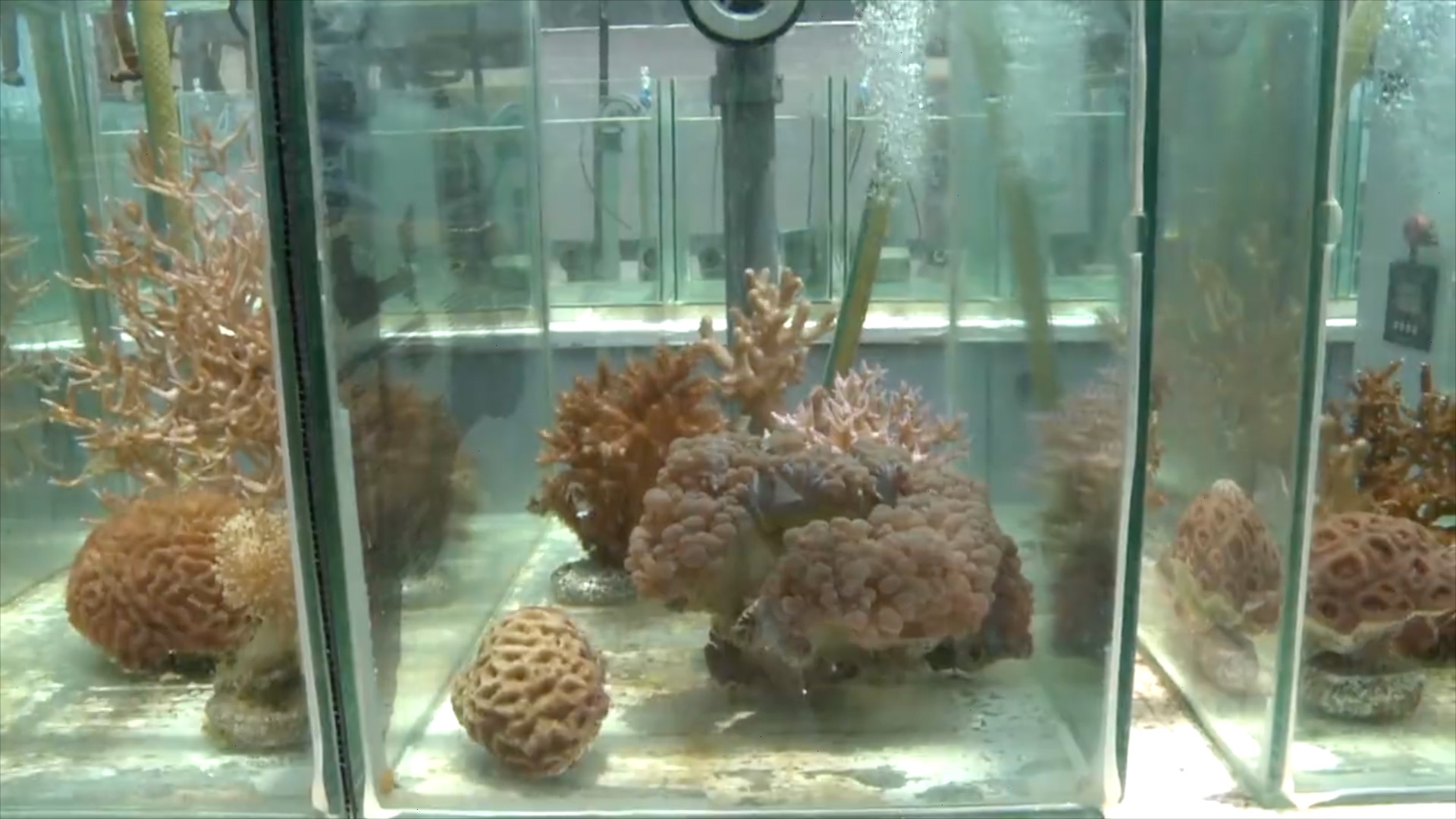01:34

Coral reefs are one of the ecosystems with the most diverse biodiversity on earth, and is dubbed "tropical rain forest in the ocean". However, as global warming intensifies, scientists predict that nearly 60% of the world's corals will die out by 2030. In Eilat, a city in southern Israel on the Gulf of Aqaba by the Red Sea, scientists are working to find a possible habitat for the corals.
Located at 29 degrees north latitude, Eilat is one of the northernmost habitats for coral reefs on earth. After thousands of years of evolution, the Red Sea corals here have a higher heat resistance than corals in other areas. This manifests special significance to the local coral conservation research as rising sea temperatures are killing reefs across the planet.
Maoz Fine, a scientist who has been researching corals in the area for years, uses tanks to simulate the marine environment of the Red Sea. By changing parameters like the water temperature, he and his team have been observing the changes on corals under different hydrological conditions.
Fine says, most corals bleach — a sign of extreme distress — when the water sits 1 or 2 degrees Celsius above the normal summer maximum for a week or more. The northern Red Sea corals have a headroom of 5 or 6 degrees Celsius. As scientists predict another Pacific Ocean El Niño heat wave will hit the planet this year, the corals of the world are likely to experience another round of bleaching. Therefore, coral reefs in the northern Red Sea may be the last of their kind if they are well-preserved.
Fine also points out that his team found out when there are more external inferences like oil spills, chemical pollution and coastal over-exploitation happening, the heat resistance of the corals is greatly weakened or even disappears. Under these circumstance, he said in a limited time, the best way to protect the coral may not be improving technologies, but to minimize the damage caused by humans to them.
According to the UN, though coral reefs cover less than one percent of the ocean floor in more than 100 countries and regions, they are home to 25 percent of marine species. The loss of coral reefs will be a huge impact on global biodiversity conservation.
(Cover images via VCG)
(If you want to contribute and have specific expertise, please contact us at nature@cgtn.com.)